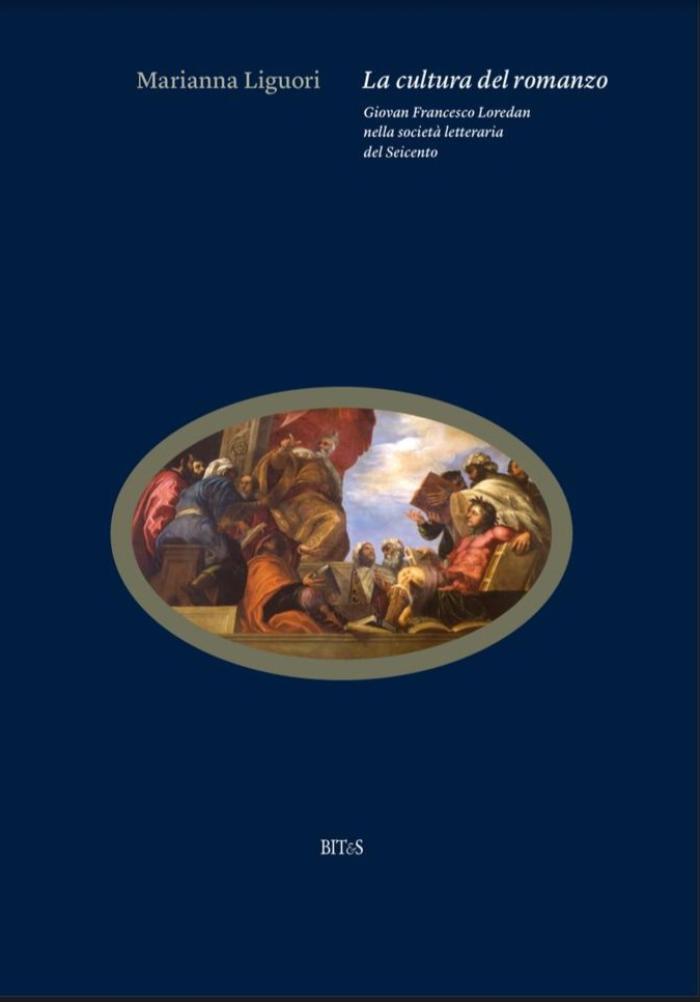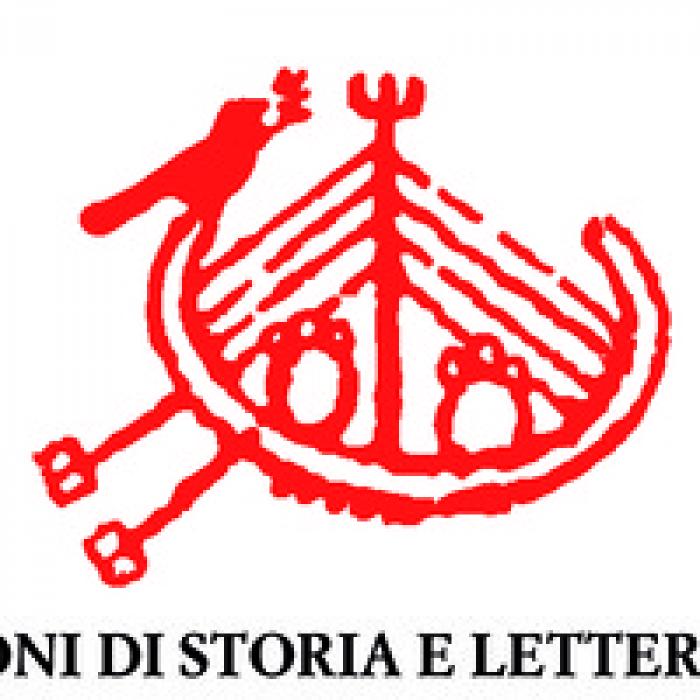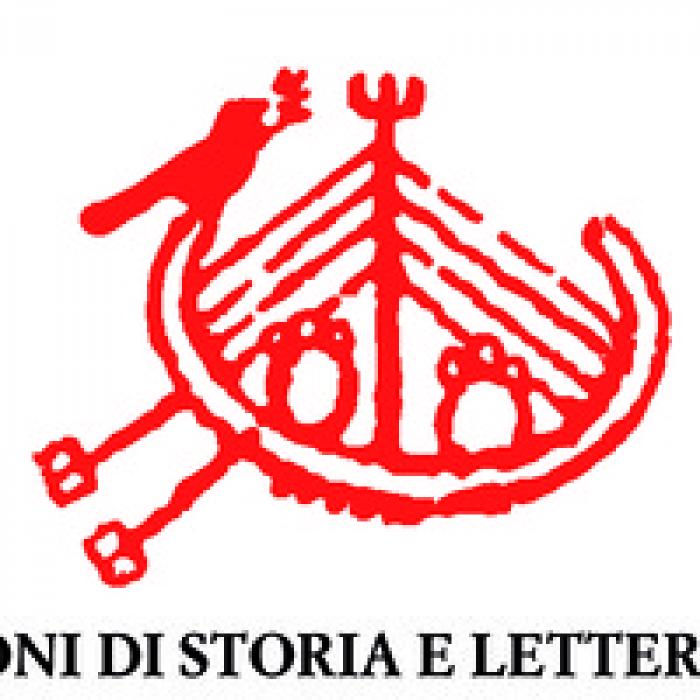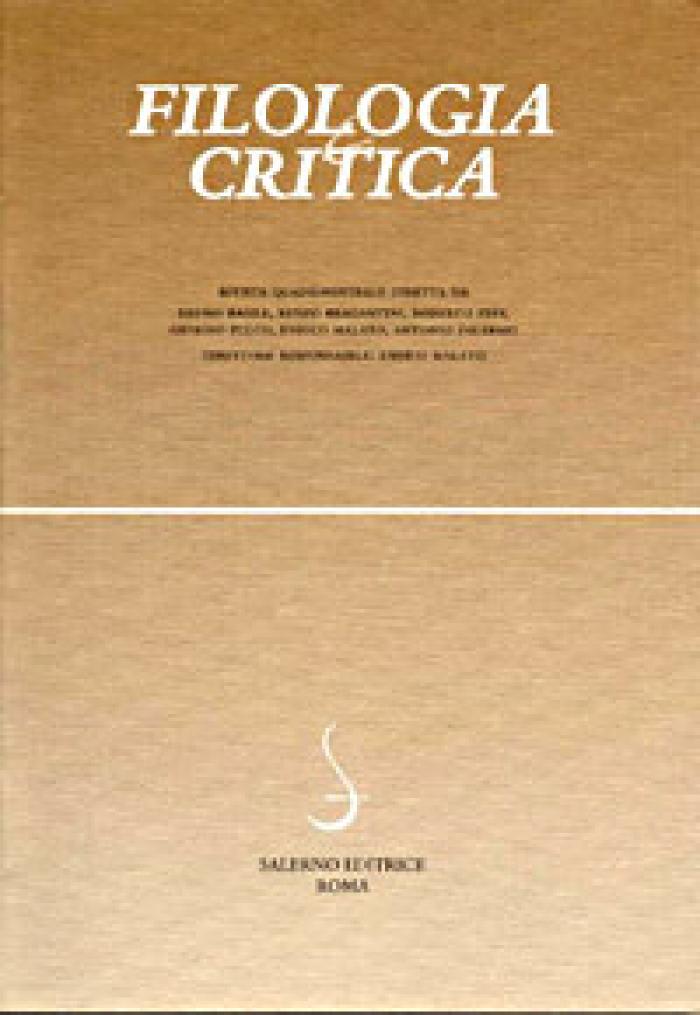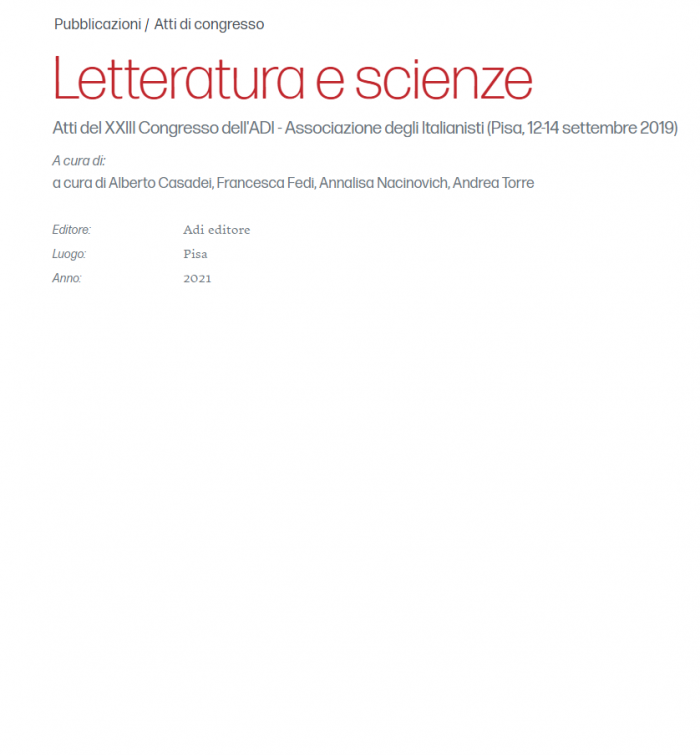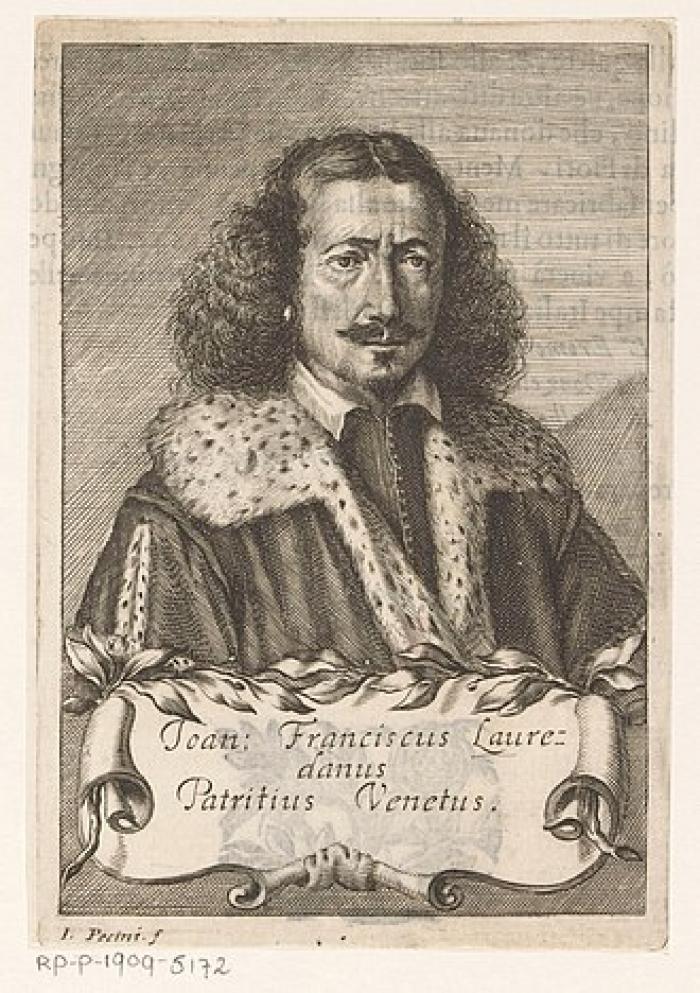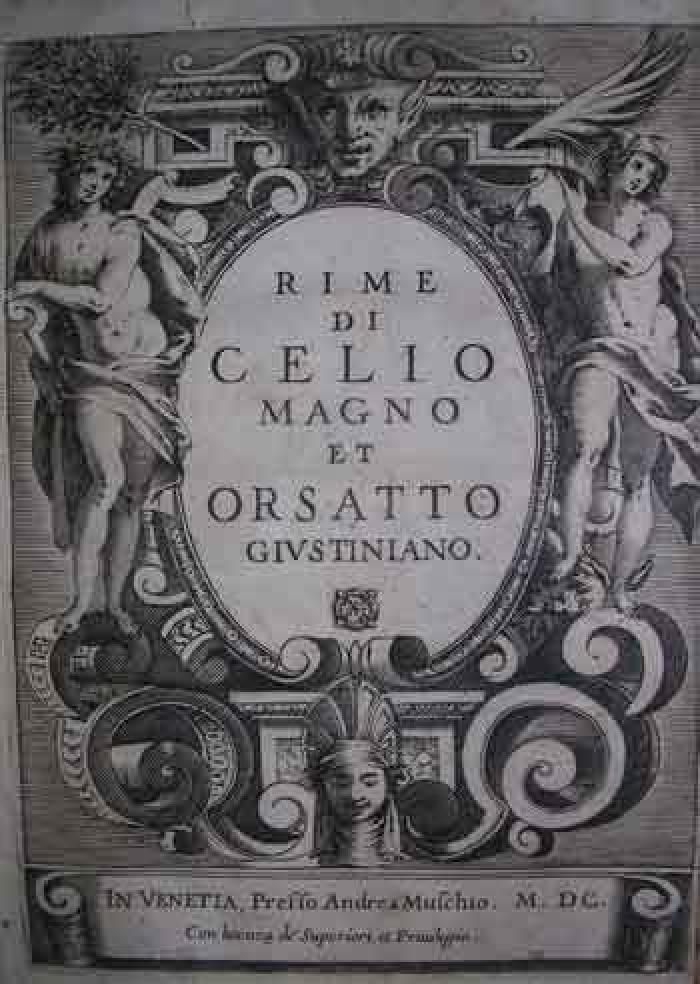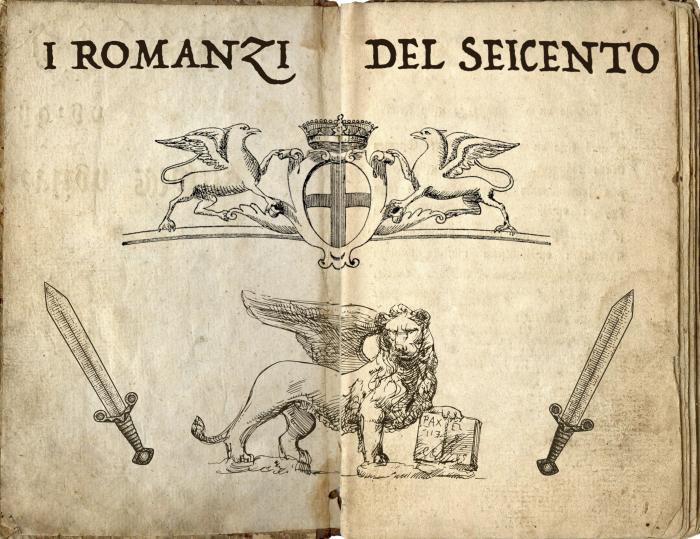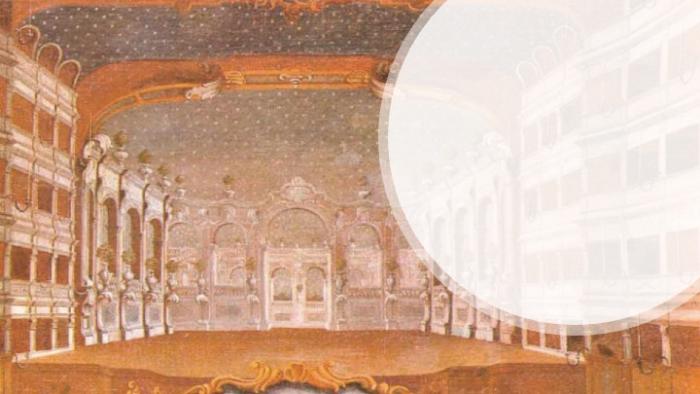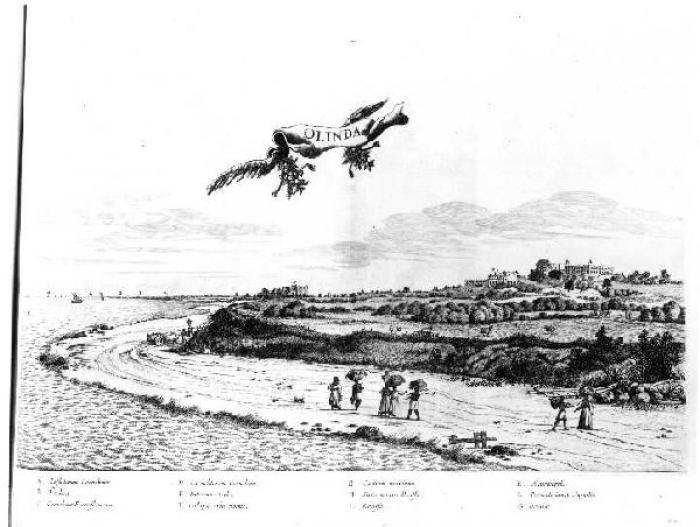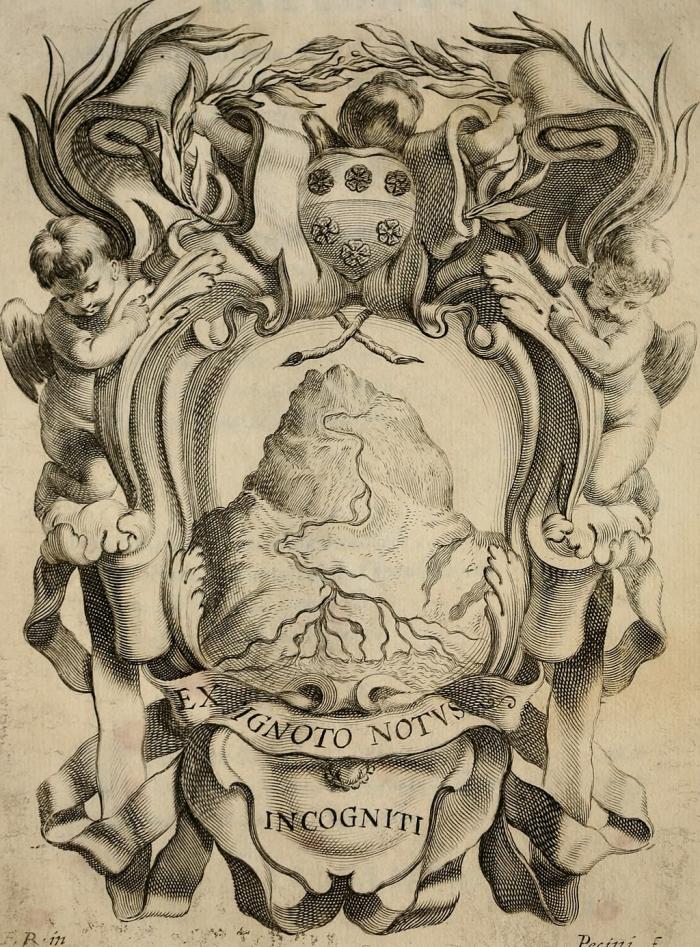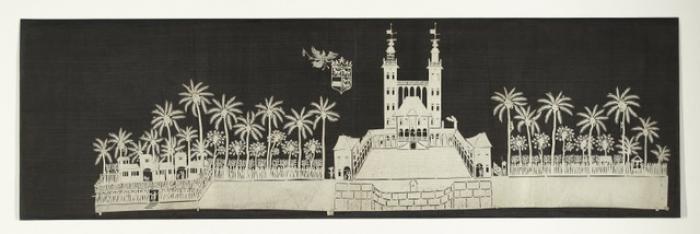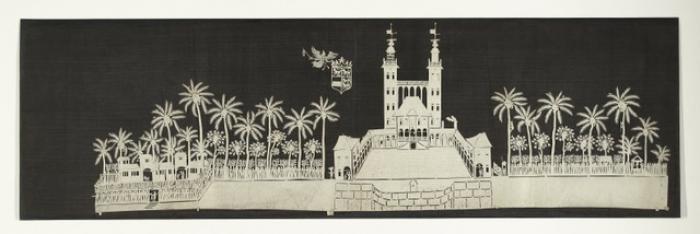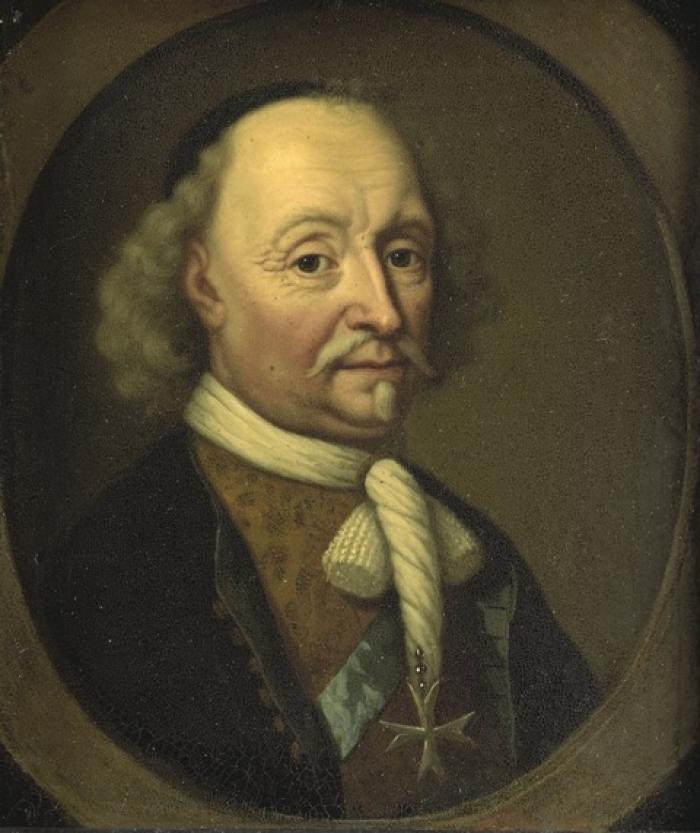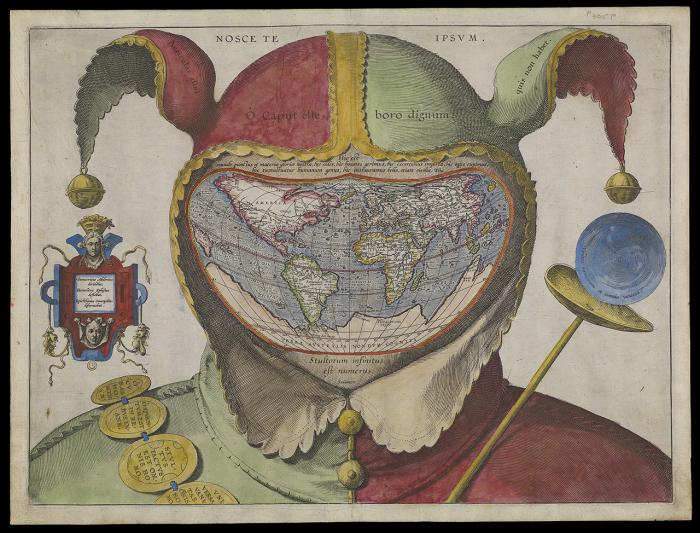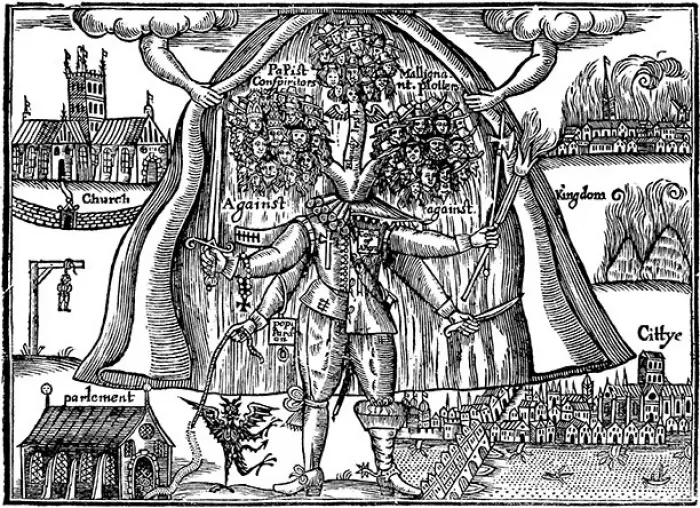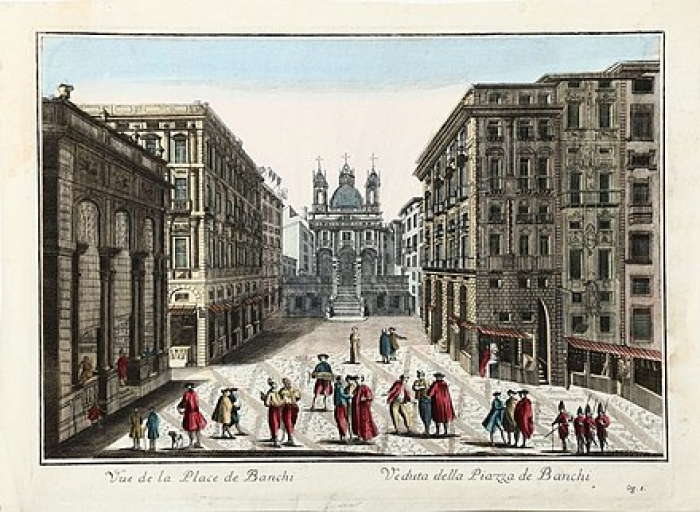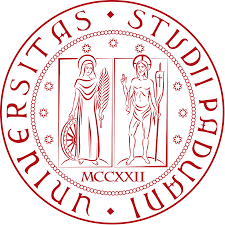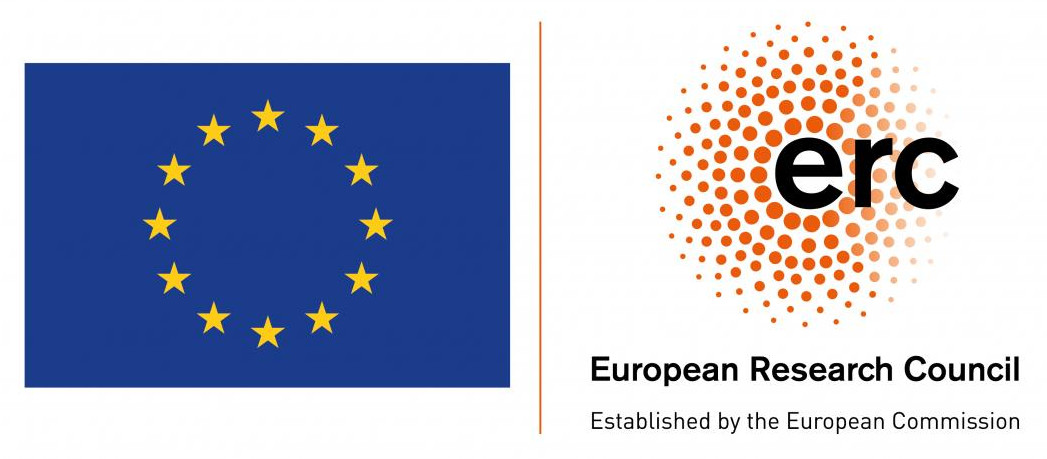SIRE
The Sick Body Politic of the Republic. Political Disease and Literature as Medicine in Early Modern Genoa and Venice (late 16th - early 18th century)
PI: Alessandro Metlica
The project (SIRE) is a comparative study on the ways republics, along with their political institutions and sociological components, are represented in the literature of the Ancien Régime (late 16th - early 18th century). SIRE focuses on a long-term chronology, in order to compare the two major Italian republics, Genoa and Venice; the project also promotes interdisciplinary investigation of printed material in the areas of Liguria and Veneto, combining features of the study of performance arts and literary history. The main objective of the project is to radically reconsider the ways in which republican states were described and conceptualized, and the ways in which these descriptions indicate divergence from the absolutist model.
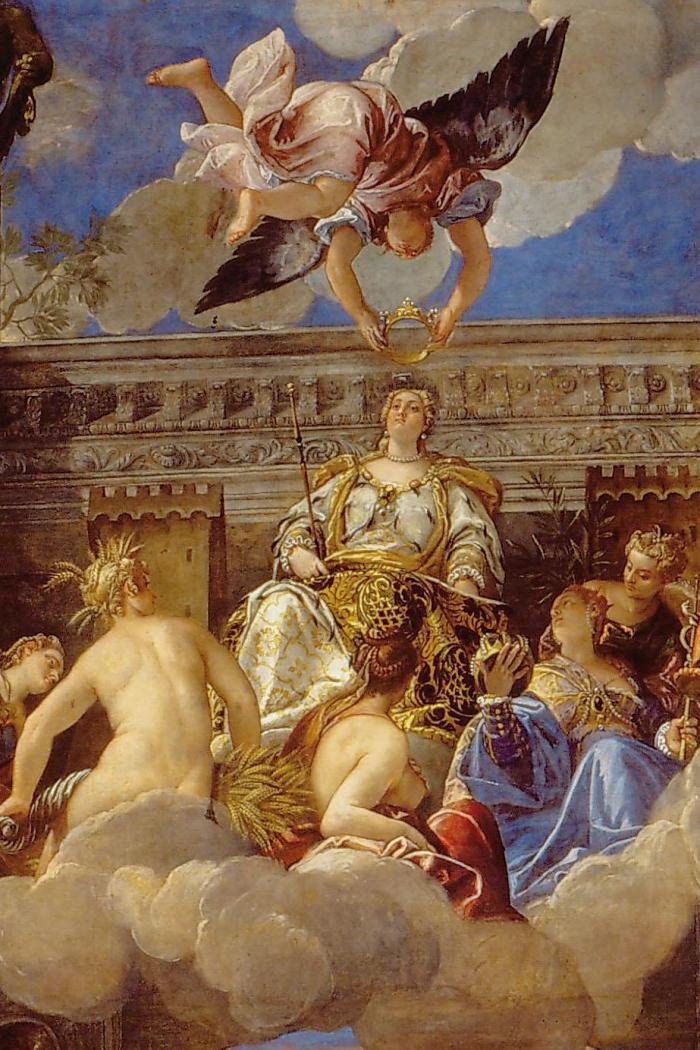
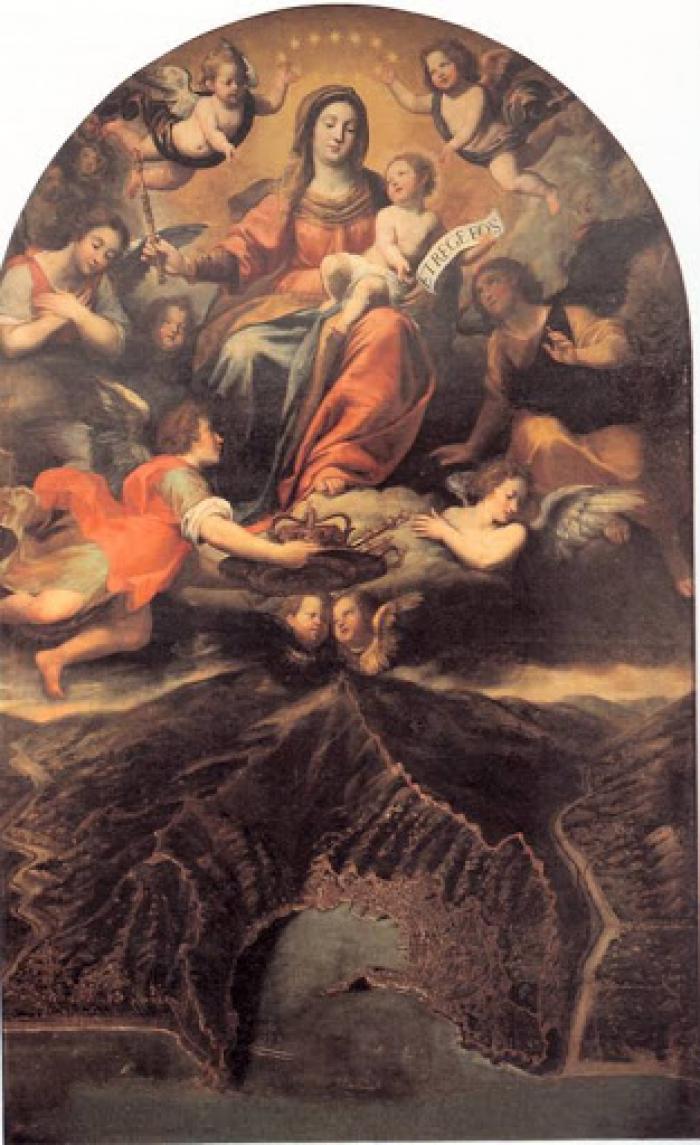
The comparison is carried out using thematic criticism, and investigates a specific rhetorical, lexical and metaphorical field, that of the ‘body politic’. From Plato to Hobbes, several authors have conceptualized the state in terms of the human body, and have applied the vocabulary of anatomy and medicine to political discourse. The tòpos was most widespread during the 17th century, when images of social pathology (sedition, revolt), endemic disease (civil war) and external pathogens (preachers, religious movements) found a place in treatises, but also in novels and plays.
The aim of SIRE is to establish:
- what the meaning of the ‘body’ metaphor in the absence of a monarch – generally identified as the 'head' of the 'body politic' (the 'head of state') – is;
- the ways in which several foundational stories (the healing virtues of the monarch, the 'natural' status of monarchy) are revised from a republican point of view;
- what role literature plays (a true pharmakon, both cure and poison);
- what the differences in the aesthetic and political development of this theme are, in the context of Liguria and Veneto.
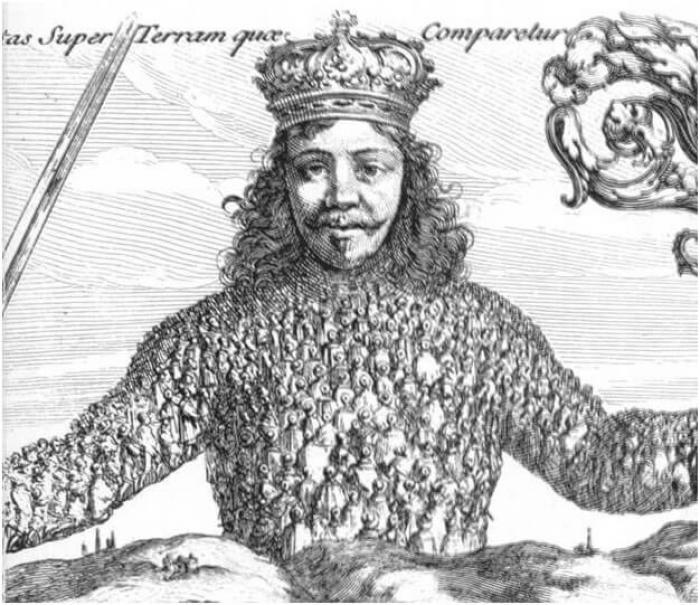
In order to achieve these purposes, SIRE investigates how the republics of Genoa and Venice were represented in contemporary tragedies, drammi per musica, novels and treatises printed from the end of the 16th to the beginning of the 18th century. Specifically, the corpus takes the following textual types intoaccount:
- Theatre. SIRE investigates all of the major dramatic works written in Genoa during the first half of the 17th century – the tragedies of Ansaldo Cebà, where ancient cities (Sparta, Capua) act as representations of modern ones; the pastoral fables of Gabriello Chiabrera, debating the social code of Genoese aristocracy; the comedies of Anton Giulio Brignole Sale, with their accurate references to contemporary Genoa. On the Venetian front, SIRE will examine all the drammi per musica that focus on history (of Troy, of the Roman Republic, or of eastern tyrants). The analysis of these works will focus on their prologues and encomiastic paratextual sections.
- Prose. The corpus embraces the entire history of the Baroque novel: from the Eromena by the Venetian Giovan Francesco Biondi (1624) to the Cane di Diogene by the Genoese Francesco Fulvio Frugoni (1689). This research also extends into ‘political’ writings such as the Esploratore turco by Gian Paolo Marana (1684-1686) and the Vita civile by Paolo Mattia Doria (1709). A privileged place is occupied by those works that deal explicitly with the ‘body politic’: from the Maschera iatropolitica by Francesco Pona (1627) to the Politiche malattie della Repubblica di Genova e loro medicina by Gasparo Squarciafico (1655). The literary activity of the Accademia degli Addormentati (founded in 1587) and of the Accademia degli Incogniti (1630) are the object of careful re-consideration.
- Panegyric. RISK specifically investigates encomiastic production in Genoa and Venice, specifically for what concerns: x) orations addressed to the Doge; y) verse panegyrics; z) published collections of lyric poetry composed on military victories, elections, or civic anniversaries. Information that emerges as a result of RISK, especially if related to the 'body politic', will be made available to SIRE, which will in turn integrate the results of RISK with more precise information on theatre and political prose.
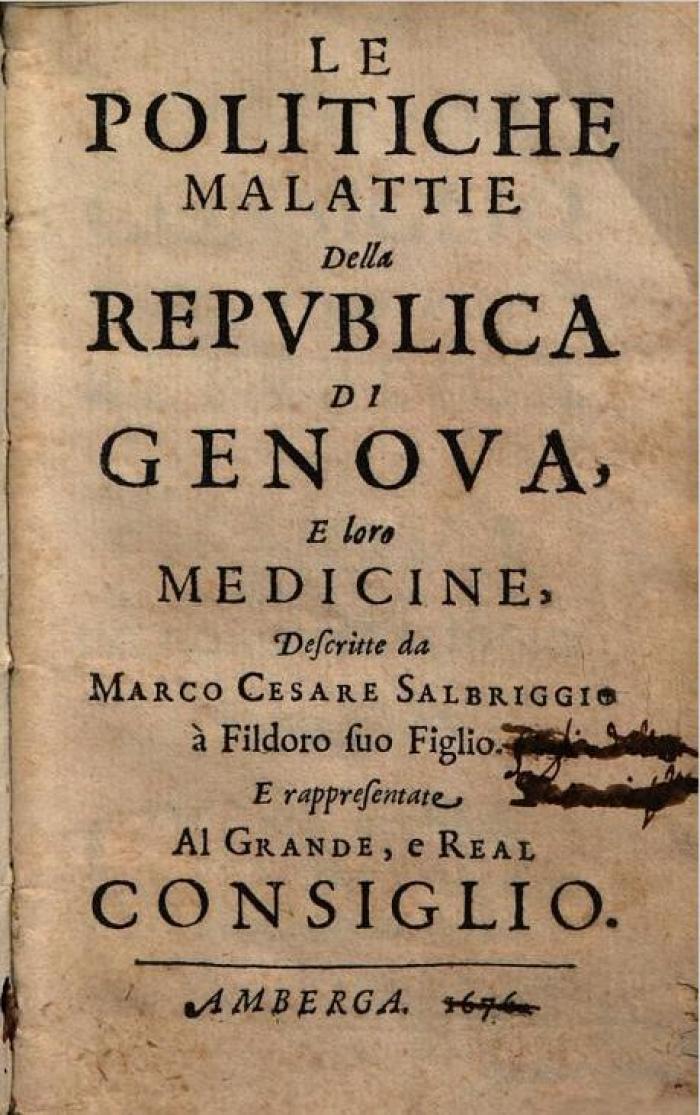
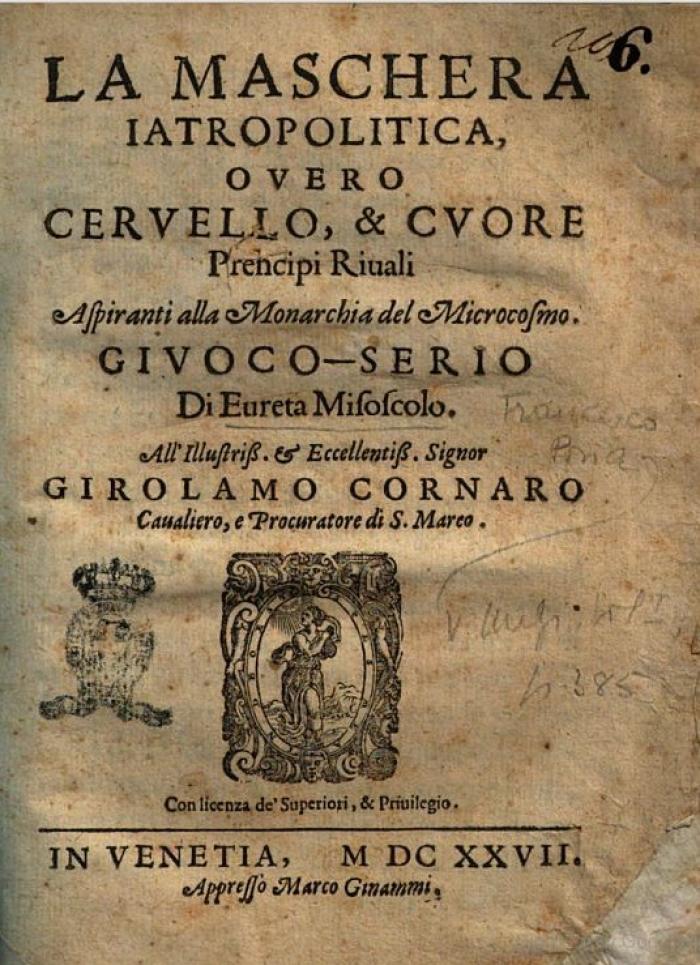
SIRE effectively integrates the ERC project RISK. While RISK entrusts each case study to a single member of the research group, based on geography, SIRE investigates the two major republics in Italy in a comparative perspective. While RISK divides the corpus horizontally, comparing different types of sources, SIRE cuts through the corpus vertically, comparing sources of a different nature. While RISK traces morphological constants inside thematic multiplicity, SIRE investigates the evolution of a specific theme (the ‘body politic’) inside a corpus of texts of the same type. Integrating SIRE and RISK will allow us to interpret the representation of republican power in the age of absolute monarchies in considerably more depth, and will substantially innovate our understanding of modern Europe.
(Framework per l’Attrazione ed il Rafforzamento delle Eccellenze per la Ricerca in Italia)
PI: Alessandro Metlica
Project number: R18WX2Y3BY
Overall budget: € 231.446
End date: 31 May 2024
SIRE events
SIRE publications
